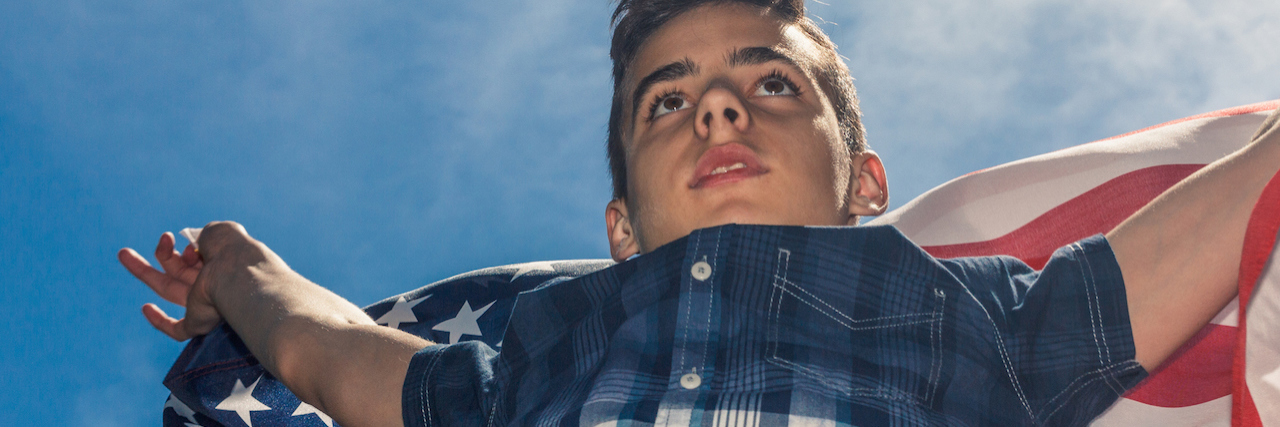As the mother of a 17-year-old high school junior, it is heartbreaking and terrifying to think about what the students and families in Parkland, Florida experienced on, and since, February 14, 2018. However, by trying to put ourselves in their shoes and by struggling with some of the most difficult challenges before us as a nation, we are honoring those who died as well as those who survived — because their lives are forever changed.
In response to the horrific attack that took 17 lives and shattered a community, we are seeing a raw, focused and sustained expression of pain and outrage that we have rarely seen before. Where this will lead, we can’t yet know. Students are calling for demonstrations, protests and most importantly, action. This is heartening and encouraging because I believe our nation clearly needs to wrestle with our gun laws, the issue of gun safety and the availability of assault weapons in our communities.
My father was a first-generation American who lied about his age to join the Navy after Pearl Harbor because he loved his country. He was also an avid hunter and a proud card-carrying member of the National Rifle Association. I’m certain he would be shocked and dismayed about how the organization that supported his interests as a gun owner is using its heft to influence public safety policy.
But there is another issue we are having trouble discussing in a thoughtful and productive manner: the emotional well-being of those who are in need in our nation. We need to talk openly and honestly about mental health, but not with the “either/or” approach that seems to be reflected in current online and broadcast conversations. I recently heard a political strategist say we really must talk about mental health as part of the solution. I was excited for a moment, until I realized he meant we need to talk about keeping guns out of the hands of people who have “mental issues.”
We do need to discuss the danger of guns in the hands of seriously troubled individuals. But first, we need to acknowledge some basic truths. Most people who experience mental illness are more likely to be the victims of violence than the perpetrators. Also, much of the violence that occurs as a result of unaddressed mental health concerns is self-directed. And, finally, it’s worth noting that the majority of people who use guns to commit acts of violence do not have a mental illness.
Still, our health care system is woefully inadequate in meeting our nation’s mental health needs. The challenge is great, but not insurmountable. Most importantly we must change how we think about, talk about and address emotional pain and suffering — which all families experience at some point. In my opinion, we clearly don’t value mental health the way we do physical health, and we don’t teach our kids how to care for themselves emotionally. As a result, there are massive cultural barriers that prevent people with mental health challenges, and their families, from talking openly about their pain. This makes it extremely difficult for families to get information about what to do and where to go.
In addition, we don’t have enough mental health professionals or substance abuse counselors in our country or our communities. Furthermore, mental health care, as it is currently delivered, is expensive and only available to those who have the adequate means. And, sadly, some of our laws actually prevent us from providing appropriate care to those who are at risk to themselves and others.
The solution is not to do more of what we have done before, rather to think differently about how to deliver mental health education and treatment. We will only succeed when our communities begin to value emotional well-being and invest in care for our most vulnerable citizens. The young man who killed those students and educators in Parkland, Florida wasn’t born a killer. Something went horribly wrong during his young life, and he fell through the cracks of his community — but there are cracks in every community, and we must do better. Funding innovative prevention and early intervention efforts will save lives and money.
The issues we face are challenging, but challenges provide opportunities. We owe it to our children to have these difficult conversations. We owe it to them to put aside our partisan politics, our self-interests and our fears in order to find solutions that protect them. We owe it to them to do all that we can.
If you or someone you know needs help, visit our suicide prevention resources page.
If you need support right now, call the National Suicide Prevention Lifeline at 1-800-273-8255, the Trevor Project at 1-866-488-7386 or reach the Crisis Text Line by texting “START” to 741741.
Getty image via BravissimoS

